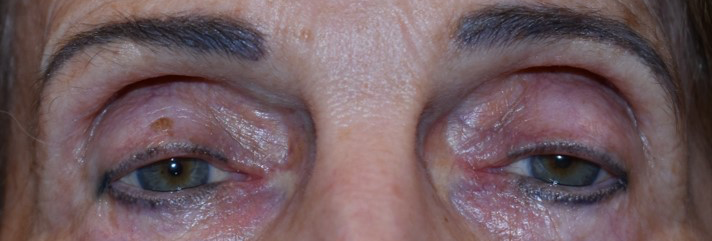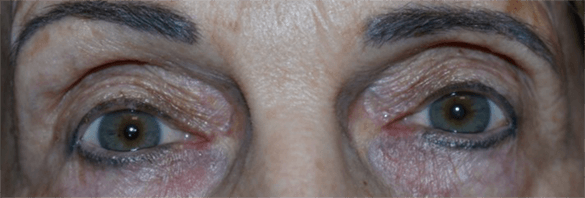Ptosis
As we get older, many of us come face to face in the mirror with drooping eyelids. The sagging may worsen over time, changing your appearance in an undesirable way, and it may impact your peripheral vision.
Age, as well as certain diseases, can impact the muscles and skin of the upper and lower eyelid in several ways. The drooping may come from a condition called ptosis, in which the muscles of the upper eyelids lose their strength and start to sag. Ptosis can be caused by diabetes or neuromuscular problems, but can also occur with aging. The edge of the eyelid, where the lashes grow, crosses over the pupil to the point where it is blocking it, affecting your field of vision.
Another common eyelid problem is called dermatochalasis, in which excess skin of the upper eyelid sags to the point where the skin appears to bag, giving one a tired appearance. This too can impact your vision. With dermatochalasis, the excess skin of the lid, rather than the lid itself, droops because it loses elasticity, creating skin folds that may hang over the lashes and cover the pupil.
If these conditions affect your vision, you may try to unconsciously compensate by raising your eyebrows, which can lead to tension headaches. Both conditions, if severe enough, can impact driving, reading and one’s ability to function properly.

With Ptosis

After Surgery
Care for Ptosis or Dermatochalasis
Your OCB ophthalmologist is able to determine whether ptosis or dermatochalasis or a combination of the two is impacting vision by taking measurements of the eyelid and the eye opening and performing visual field tests.
Eyelid surgery is an outpatient procedure that involves repairing the lid’s lifting muscle and removing excess skin or fat. The tiny incisions are typically concealed in naturally occurring creases of eyelid skin. Most insurance companies cover this procedure if the drooping eyelid is affecting your vision. Your OCB ophthalmologist will determine whether this procedure is cosmetic or medically necessary to give you improved vision.
Learn more about OCB’s Oculoplastic and Cosmetic Care services.
